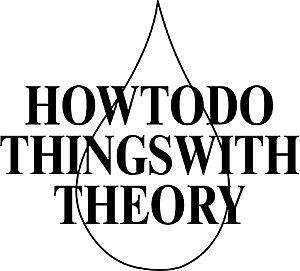2024-2025 FROM CONFLUENCE TO CONFLUENCE ~ Amit Rai's seminar: How to do things with Attention?
SEMINAR 1: DECEMBER 7 & 8 2024
In this initial seminar, we will begin our historical materialist and molecularly intensive encounter with the political economy of attention. We begin by stretching and doing some free writing. Then we proceed with contextualising Walter Benjamin's notion of the aura in relation to contemporary creative labour and new forms of the monetisation of the aura in platform capitalism. We will link the critique of capitalist labour regimes to a particular mode of attention that moves from product to process. We will watch two short films, take a walk on the beach, and get to know each other. We will discuss how we de-attend as we continue to care for our ecologies of attention.
[Suggested background reading: Benjamin, W (1938) The Work of Art in the Age of Mechanical Reproduction]
Day 1:
Marx, Fragment on Machines, from the Gründrisse (1858) in The Accelerationist Reader
Chapter 7: Fragment on Machines in Pitts FH (2017) Critiquing capitalism today. London: Springer.
Day 2:
Pedersen, M.A., Albris, K. and Seaver, N., 2021. The political economy of attention. Annual Review of Anthropology, 50(1): 309-325.
Texts we will refer to / read passages from in class (not necessary to read in advance):
Franz Fanon, The Wretched of the Earth
Saidiya Hartman, Wayward Lives, Beautiful Experiments: Intimate Histories of Social Upheaval
Gleeson J J and O’Rourke E (2021) Introduction to Transgender Marxism. London: Pluto Press.
Selections from Valeria Graziano, Pirate Care (forthcoming)
Selections from Lotz C (2016) The capitalist schema
To screen Day 1:
The Battle of Algiers (1966)
To screen Day 2:
Handsworth Song (1986)
Podcasts:
https://open.spotify.com/episode/0BidLsUQh1N6ZWftW3R5lt?si=jbt-hTMyTiWkbEJBNGG43A
https://open.spotify.com/episode/6ESHZcBEsp9IGO7ceGGqQI?si=-SPNTVIuQTGj1XL-gfsK7A
https://open.spotify.com/show/6AgoGYQkbSJLB2rP7fT4gP
SEMINAR 2: January 10, 11, 12 2024
In this second seminar we will pursue the vectors diagrammed in our first session, and we will continue composing well posed questions of the political economy of attention and its historically specific field of affordances in racial-caste capitalism. We will freewrite, take walks, watch short and long films, we will listen to podcasts, listen to music, read outloud, recite poetry, and with each activity we will ask how is it we are doing things with our attention? We will return to Pitt's critique of 'fragment' thinking in post-Adornian Marxist critiques of the cognitive capital thesis, and situate the relation of technology to living labour through Starosta et al (2023) situating of intellectual labour and intellectual property with a broader on going crisis and primitive accumulation necessary for racial-caste capitalist accumulation and extraction. We will then consider the neurology of attention as an optimal grip on a field of affordances and its relation to machine learning, data as probabilistic measure of a presumptive whiteness will be linked to Wynter's and Amaro's bioepistemic capture of the human and to the entanglements of race, technology, and anti-Blackness. We will end our time in Nida with Saidiya Hartman and with walks discussing the wayward lives of queer Black women in the Northeast of the USA from around 1920 to 1950.
10 January:
Pitts: Chapter 7: Fragment on Machines in Pitts FH (2017) Critiquing capitalism today. London: Springer.
Chapter 7: "Cognitive commodities and the growing role of intellectual labour in value-production" in Starosta, G., Caligaris, G. and Fitzsimons, A., 2023. Value, Money and Capital: The Critique of Political Economy and Contemporary Capitalism. Taylor & Francis.
11 January:
Bruineberg, J. and Rietveld, E., 2014. Self-organization, free energy minimization, and optimal grip on a field of affordances. Frontiers in human neuroscience, 8, p.599.
Conclusion to Amaro, R., 2019. Machine learning, sociogeny, and the substance of race (Doctoral dissertation, Goldsmiths, University of London).
12 January:
Saidiya Hartman, Wayward lives to page 150.

